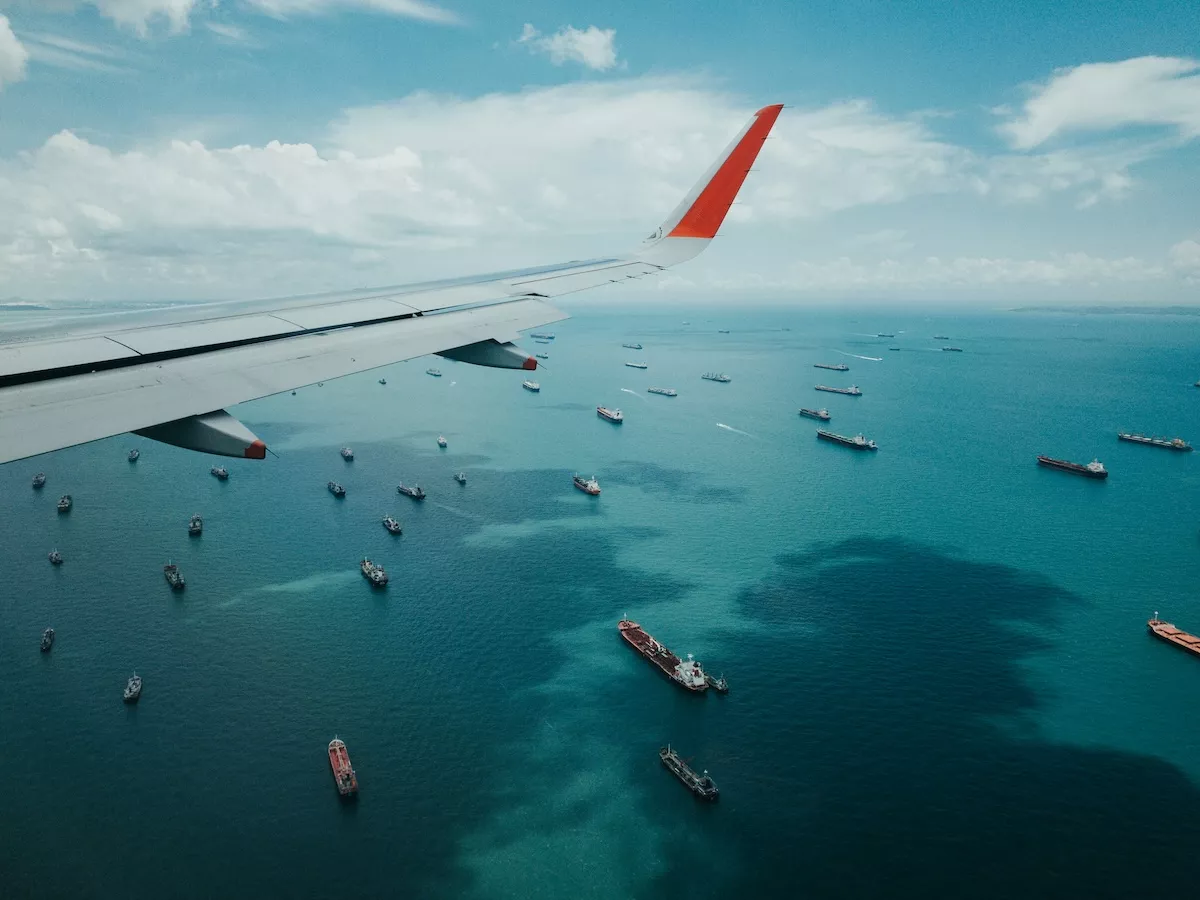The European Commission has announced a €2.9 billion plan to accelerate the production and deployment of green fuels across Europe’s hardest-to-decarbonise transport sectors: aviation and maritime.
Aimed at cutting carbon emissions and strengthening energy resilience, the new funding initiative is part of the EU’s broader push to meet its binding target of climate neutrality by 2050. Commercial planes and ships currently contribute approximately 26.4% of transport-sector emissions in the EU, and both remain overwhelmingly dependent on fossil fuels.
Commissioner for Sustainable Transport and Tourism Apostolos Tzitzikostas said the package is “about strengthening Europe’s competitiveness while moving decisively towards a net-zero future”.
“By investing in scaling up renewable and low-carbon fuels, we are making Europe’s transport system cleaner, more resilient and more affordable for citizens,” he added.
A €100 Billion Market, Starting Now
The Commission estimates that by 2035, Europe will need 20 million tonnes of sustainable fuels — such as advanced biofuels and synthetic e-fuels — to meet its green fuel targets. That ambition will require around €100 billion in investment. The €2.9 billion announced this week will be disbursed from the EU’s multiannual budget through 2027 and will focus on early-stage projects and scale-up infrastructure.
While more than 40 e-fuel projects are in the pipeline across Europe, none have yet reached final investment decision — a signal that market certainty and government support are still lacking. Challenges include the high cost and complexity of generating green hydrogen, limited renewable energy capacity, and gaps in carbon capture and storage.
Aviation and Shipping Targets Set
Under EU law, maritime transport must reduce its greenhouse gas emissions by 2% by 2025 (from 2020 levels) and reach an 80% reduction by 2050. The aviation sector, meanwhile, faces a requirement to supply 20% of sustainable aviation fuel (SAF) at EU airports by 2035, rising to 70% by 2050. Half of that SAF target — 35% — must come from e-SAF, a synthetic jet fuel derived from renewable electricity, water, and captured CO₂.
However, aviation industry leaders warn that mandates alone won’t be enough to build a functioning SAF market.
“Mandates alone do not create a functioning SAF market, and it is high time we collectively admit that and take action,” Ourania Georgoutsakou, managing director of Airlines for Europe (A4E), to Euro News. “Ultimately, reducing SAF costs is essential to ensuring air travel remains accessible to all while reinforcing the competitiveness of European airlines.”
Industry Welcomes, But Warns Against Biofuel Diversion
Environmental organisations and industry representatives alike have broadly welcomed the initiative — particularly its focus on e-fuels. Antony Froggatt, senior director for aviation, shipping and energy at the campaign group Transport & Environment (T&E), called it the “first effective financial instrument” to kickstart large-scale production of sustainable fuels.
However, Froggatt cautioned against over-reliance on biofuels, urging the EU to prioritise e-fuels, which are better aligned with long-term decarbonisation goals.
“It is crucial that only e-fuels be eligible for the auctions, as there are no market barriers for biofuels production,” T&E stated, referring to the upcoming €300 million hydrogen auction window targeting maritime and aviation projects.
The shipping industry also expressed cautious optimism. Jim Corbett, environmental director at the World Shipping Council, said the plan was a “promising first step” — but warned that bridging the cost gap between green marine fuels and traditional bunkers is vital.
“Without this, production and uptake will stall despite significant fleet investments already made by the liner shipping sector,” he told Euro News.
See also:
A mining giant’s green vessel docks in Monaco to lead the charge for zero-emissions shipping
Stay updated with Monaco Life: sign up for our free newsletter, catch our podcast on Spotify, and follow us across Facebook, Instagram, LinkedIn, and Tik Tok.
Photo credit: Shawn, Unsplash
